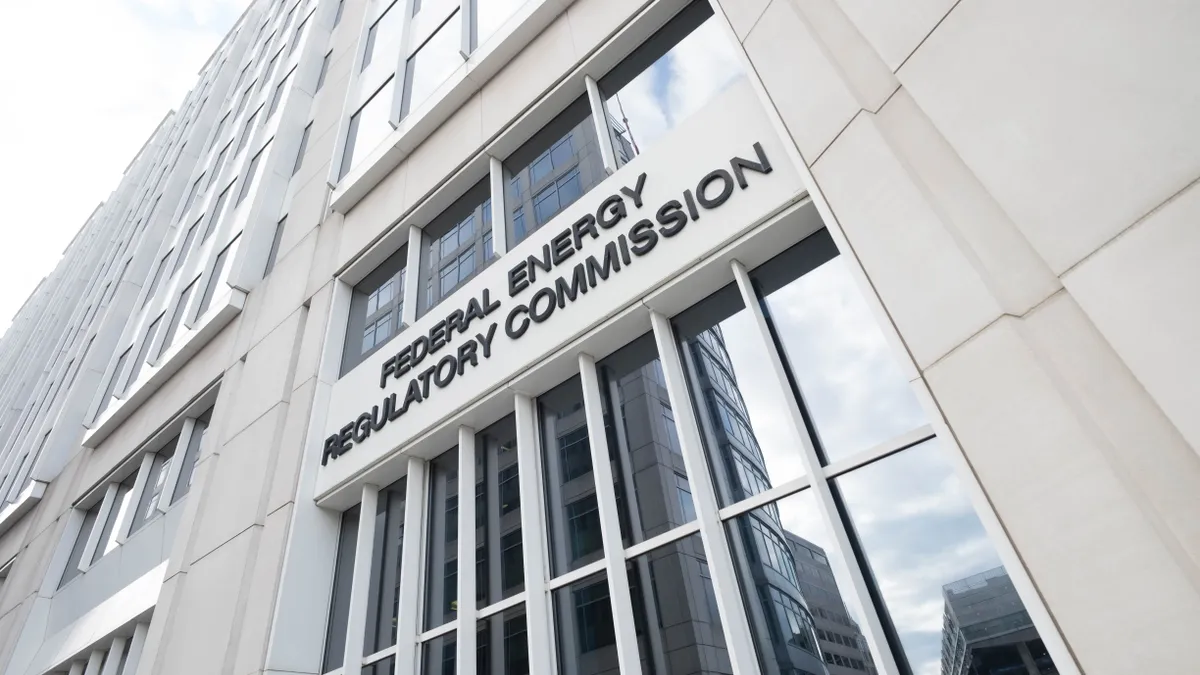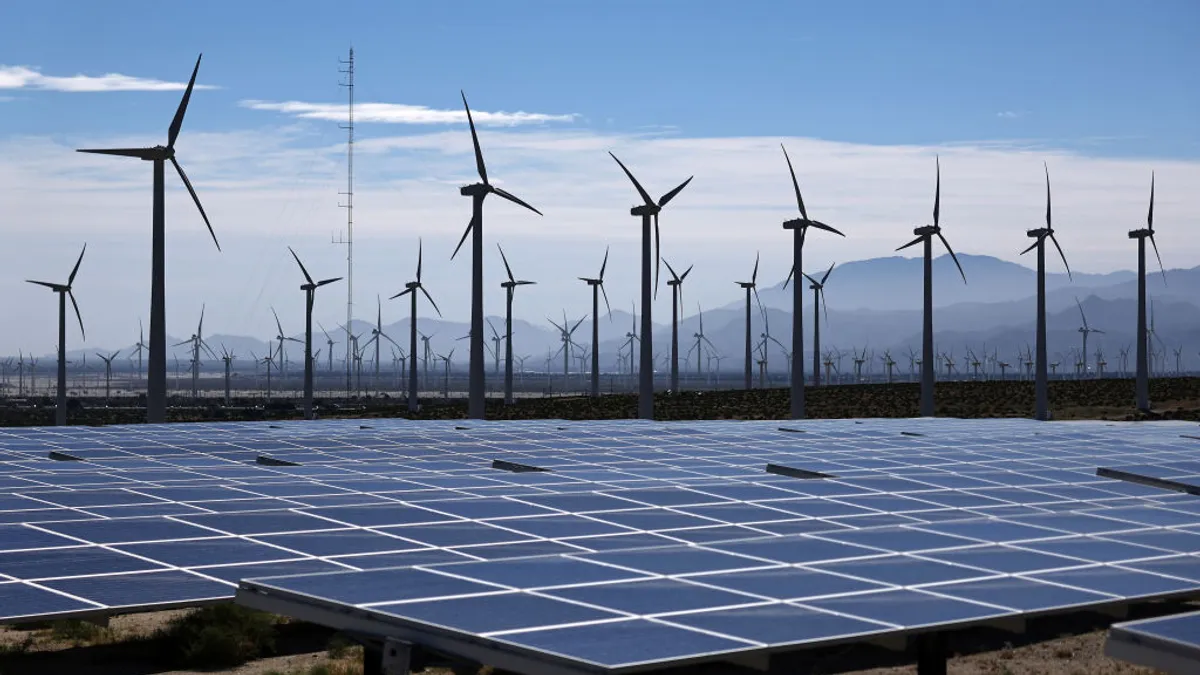Dive Brief:
- The Federal Energy Regulatory Commission last week reasserted jurisdiction over power contracts held by California utility Pacific Gas and Electric, arguing that a bankruptcy court cannot unilaterally invalidate them.
- PG&E last month asked a federal bankruptcy court to prevent FERC from enforcing the terms of more than 380 power purchase agreements (PPAs) that it may want to exit as part of a Chapter 11 proceeding. FERC argued Friday it must separately win approval from the agency to alter the contract terms.
- PG&E’s stock rose Tuesday on analyst reports that a legislative deal may soon be reached to prop up the company, but the terms of its bankruptcy and corporate reorganization are yet to be determined.
Dive Insight:
FERC's Friday filing is the latest installment in the jurisdictional tussle among the agency, PG&E and independent power producers over who has final say over the utility’s power contracts.
Last month, just before PG&E filed for Chapter 11 protections, independent generators Exelon and NextEra asked FERC to preserve the PPAs they had signed with PG&E.
PG&E holds 387 PPAs with more than 350 companies worth about $42 billion, according to court documents. Generators are concerned PG&E will attempt to exit some of its older, more expensive renewable energy contracts to cut its liabilities in the bankruptcy proceeding.
FERC in late January sided with the generators, asserting that it has "concurrent jurisdiction" over the contracts, along with the bankruptcy court in California.
"These agreements are still subject to the Commission’s jurisdiction and the Commission maintains discretion to exercise its authority," the agency wrote in its response to Exelon and NextEra.
PG&E responded by asking the court for an injunction against FERC's assertion of authority. While the utility has not decided whether to exit contracts, market conditions require that it "comprehensively assess how each PPA fits within the [its] energy portfolio," it wrote.
"Simply put, Congress has not given FERC a part to play when allowing a debtor to reject contracts in its considered business judgment," the utility wrote.
FERC’s latest filing takes that argument to task by extending the agency’s assertion of concurrent jurisdiction. Even if the bankruptcy court allows PG&E to exit some contracts, FERC argued that would not affect the agency’s authority over electricity rates set in the contracts.
"If [PG&E officials] decide to reject PPAs under bankruptcy law, they are released only from their contractual obligations, not their regulatory obligations to continue to purchase electricity at the filed rates," lawyers for FERC wrote.
If PG&E wants release from its obligation to purchase electricity at rates specified in its PPAs, it must not only convince the bankruptcy court to reject the contracts, but also "separately seek a modification of the filed rate before FERC."
"Once approved by FERC, the duty to comply with contractual terms 'springs from the Commission's authority, not from the law of private contracts,'" FERC lawyers wrote, quoting a 1952 Supreme Court case. "Thus, a party's obligation to comply with the filed rate under the [Federal Power Act] stands separate and apart from its contractual duties with its counterparty."
The jurisdictional dispute and PG&E bankruptcy case are currently being heard by Judge Dennis Montali of the U.S. Bankruptcy Court in San Francisco. The next hearing on the jurisdictional dispute is Feb. 27.













